Broadcast Management Group’s Entertainment Division has extensive experience producing large-scale multi-camera broadcasts. Our breadth of work during the last two decades includes award shows, festivals, red carpets, movie premieres, cast interview shows and concerts.
Broadcasting a live concert can be both thrilling and challenging. My experience with these multi-faceted broadcasts has shown me that there are some crucial steps along the way.
BMG has produced concerts with artists like Elton John, Andra Day, and Two Friends. While all were music concerts, each had elements that required a custom-tailored approach. For example, Andra Day was a pre-taped concert for streaming with no audience at a Los Angeles venue during Covid. The Elton John concert linked two locations, his show in Nebraska and an Oscars party in Hollywood. This event also included two-way interaction. Two Friends was at a sold-out outdoor music festival in Chicago with a load-in/shoot/strike day.
For the production company, there are two components to ensuring a successful event. They are the creative and the technical execution. For BMG, we offer a turnkey solution, so all aspects are handled in-house. If you are working with multiple partners, it is essential to have the creative and technical sides work closely together so the broadcast is flawless.
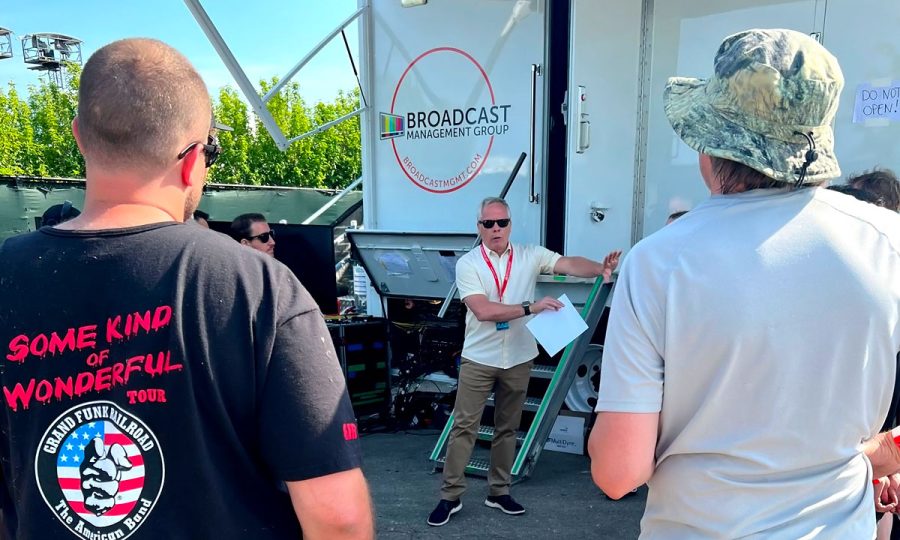
Creative
The key members of the creative team include the producer, director, and assistant director. They work closely with the talent and the client. Sometimes, the producer and director roles will be combined into one person. For music, the director plays a crucial role in working with the client, talent, and talent representatives to ensure all needs and objectives are met. It is the director’s job to bring the energy from the venue to the home viewer. The assistant director needs to be able to read music, count beats during songs, and give the director a heads-up on critical transitions of music, effects, and instruments.
At BMG, we assign the project to the appropriate producer, director, and assistant director. We then schedule a kick-off meeting with the client and talent to ensure everyone is aligned on the project’s vision. This kickoff meeting will include the production management team representing the technical execution side of the event.
Some of the items on the kick-off meeting agenda include:
- Event Date
- Length of concert
- Any other activities around the event that need to be captured
- Venue
- Schedule
- Broadcast destination, streaming, pay-per-view, broadcast
- Targeted broadcast audience
- Rehearsals
Show elements that need to be created:
- Coming soon slate, clock or no clock?
- Pre-concert content, pre-produced before the event or produced the day of
- Graphics call to action, lower thirds etc.
- Broadcast show open
- Will the broadcast cameras be used on IMAG
- Concert video support content
- Broadcast format, 1080i or 1080P what frame rate
Concert-all elements:
- Songs
- Lighting
- Pyrotechnics
- Strobes
- Special guest
- Band (how many members and singing or instruments)
- Dancers or other performers
- Broadcast show close
- Look and feel desired for the concert
From this meeting, the producer/director/AD will start working on the creative execution of the event.
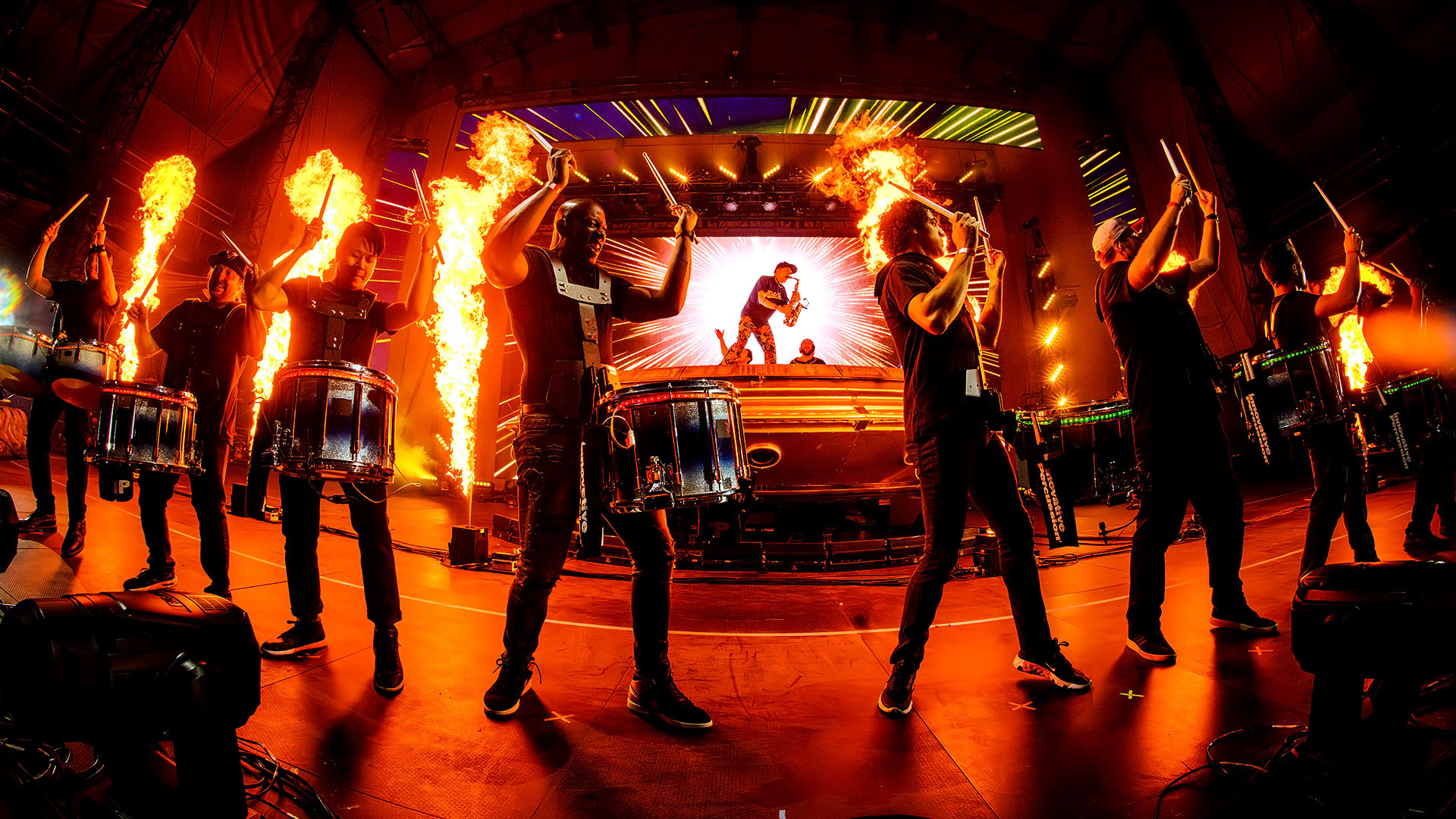
Photo Credit: Greg Fry
Producer:
Begin building the run of the show.
Director:
Start planning what tools are needed to create the look and feel of the show working within the show budget, including:
- Types and quantity of cameras
- Planning camera placement and shots
- Reviewing the previous performance of the talent
- Run ideas by client/talent
- Work with the touring technical team regarding obtaining lights, pyro, strobes, and other technical queues.
- Show queues like video support.
- Determine the best way to handle the concert’s video support content. In the broadcast, the production truck can take a feed from the front-of-house video or roll the footage independently.
- The director will review and approve all crew positions production management recommends before booking. For example having the right type of camera operators with the type of music of this show is key.
Assistant Director:
Begin acquiring the music that will be performed, including music sheets with notes and words. Start working with the producer on the run of the show, adding all notions of lighting, pyro, fire, solos, and instrumental interlude.
The producer, director, and AD usually sit in on rehearsals and meet with the client and talent to review creative ideas. In some cases, there is not an actual rehearsal. If this is a touring concert, the director will usually travel to one of the upcoming shows to get a good feel for the show. If that is not possible, they will review anything previously recorded.

The production manager plays a vital role in the broadcast’s success. Here are some of their responsibilities:
If this is a touring concert, the focus is working with the touring team and adding what is needed for the broadcast. If this event is just for broadcast, the requirements would include all of the staging, rigging, IMAG and other items to support the talent.
Action items if broadcasting a touring event:
- Venue
- Crewing the job, including matching the right crew with experience in live music
- Reviewing the crew with the director
- Building the tech book and working with the tech manager
- Schedules
- Booking technical resources, including trucks, speciality cameras, jibs, drones,
- Steadicams, Spyder cameras, tracking cameras, PTZs, POVs etc.
BMG owns most of its equipment, so booking these resources is more accessible and allows us to advance set-up and quality control.
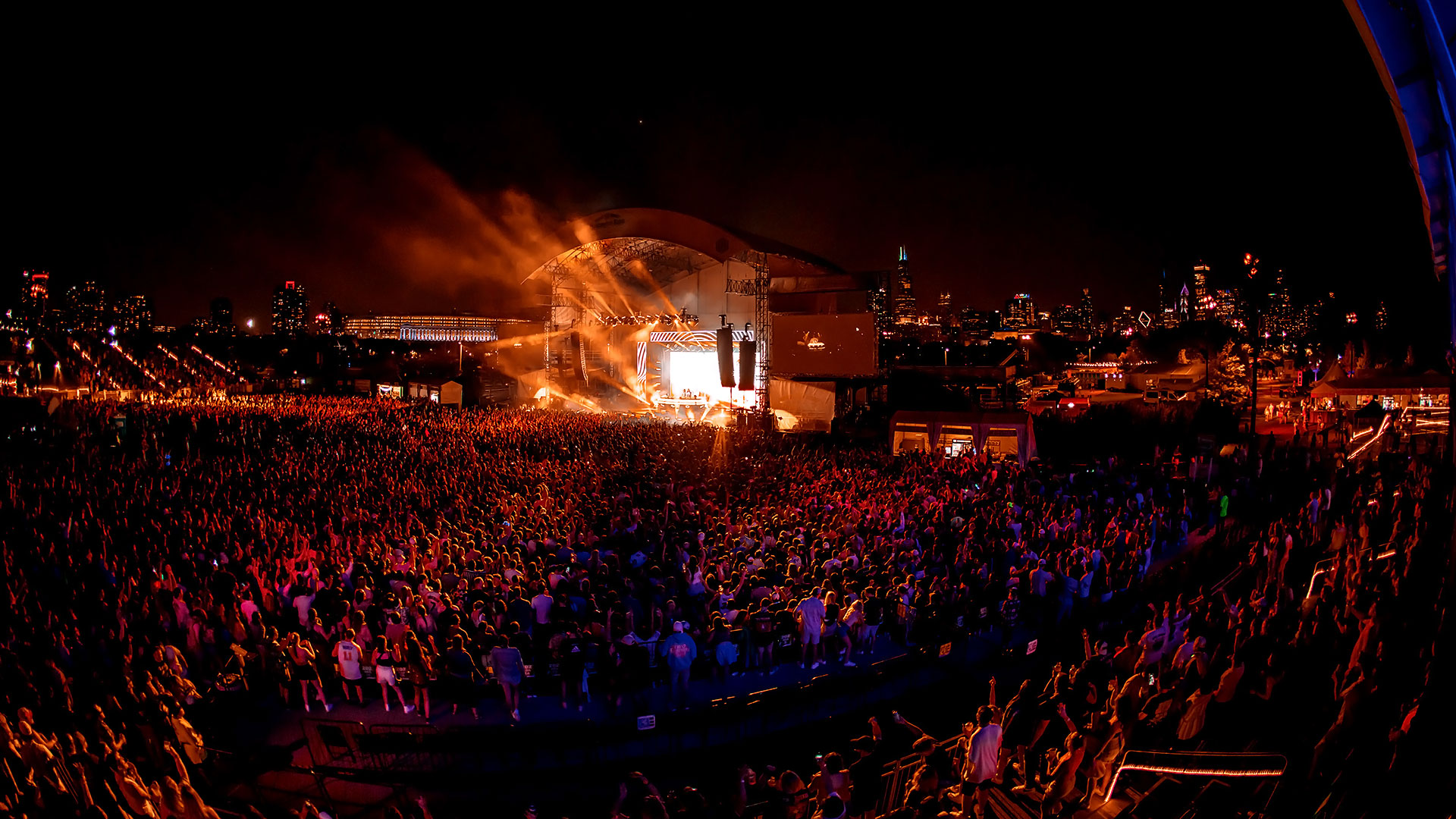
Photo Credit: Brandy Leigh
Venue Experience
There is no substitute for having the experience of working at an extensive variety of venues. Between BMG’s News, Sports, and Entertainment divisions, our production management team knows the questions to ask of each venue to ensure a successful event. It is always helpful if your partner has worked at the venue before, but if they are very experienced in all types of venues, they will know what they need to find out to ensure success.
Some of the checklist questions to ask the venue include:
- Copies of any floor plans in CAD and PDF
- Power availably
- Internet availably
- Truck parking
- Talent RV parking
- Staging and rigging tractor-trailer parking
- Crew parking
- Union requirements
- Catering requirements
- Lifts availability
- Golf cart availability
- Venue access hours
A tech manager will need to do a site visit to determine the following:
- Load in plan
- Truck parking site
- Power
- Internet test
- Crew parking
BMG has a standard requirements document that we can share with the venue that serves as a checklist.
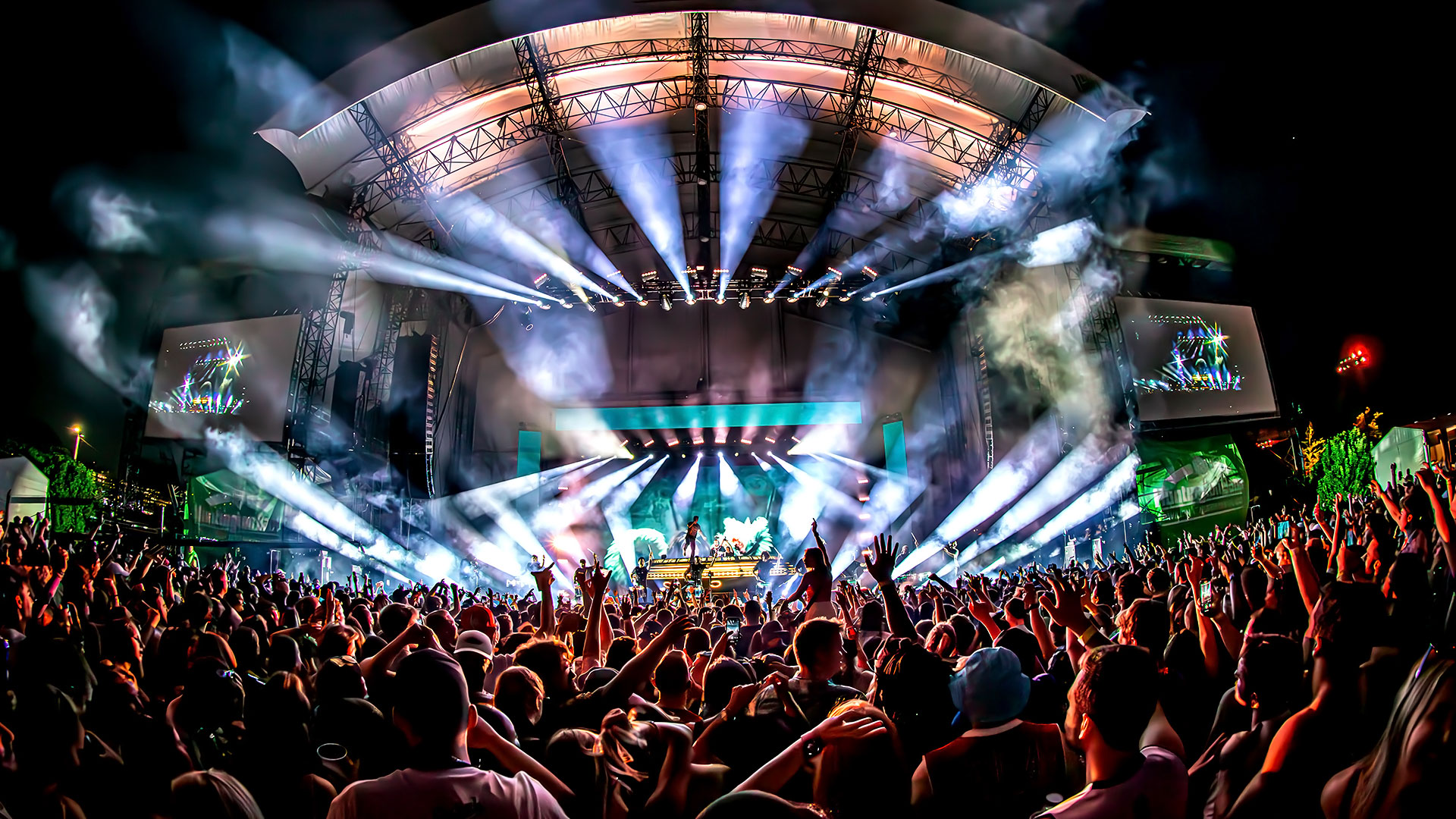
Photo Credit: Aaron Bradley
Nothing is more thrilling than being a part of a first-class live concert broadcast. The experience is unmatched. The BMG team always feels great satisfaction when we can bring a live concert into someone’s home and make them feel that they are at the venue with us!
Below are a few case studies of concerts BMG has produced. If you have an upcoming event and would like to discuss it with us, please call us at the number below or email me an e-mail.


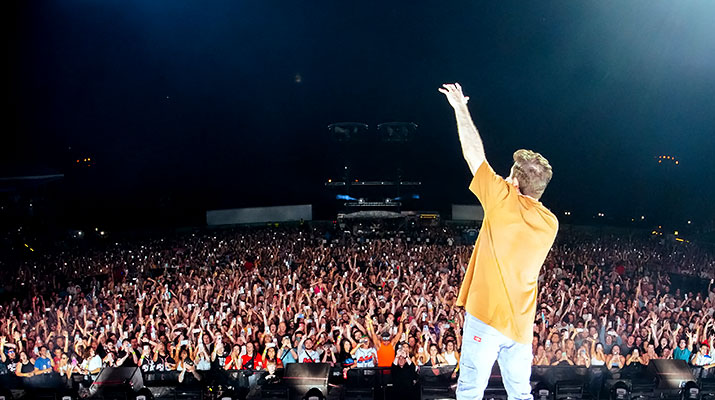
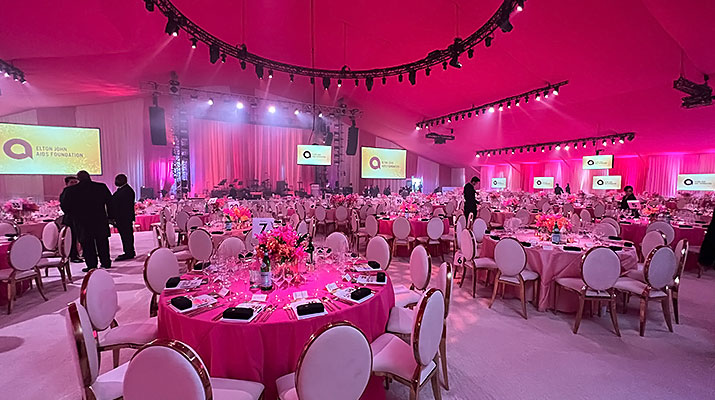
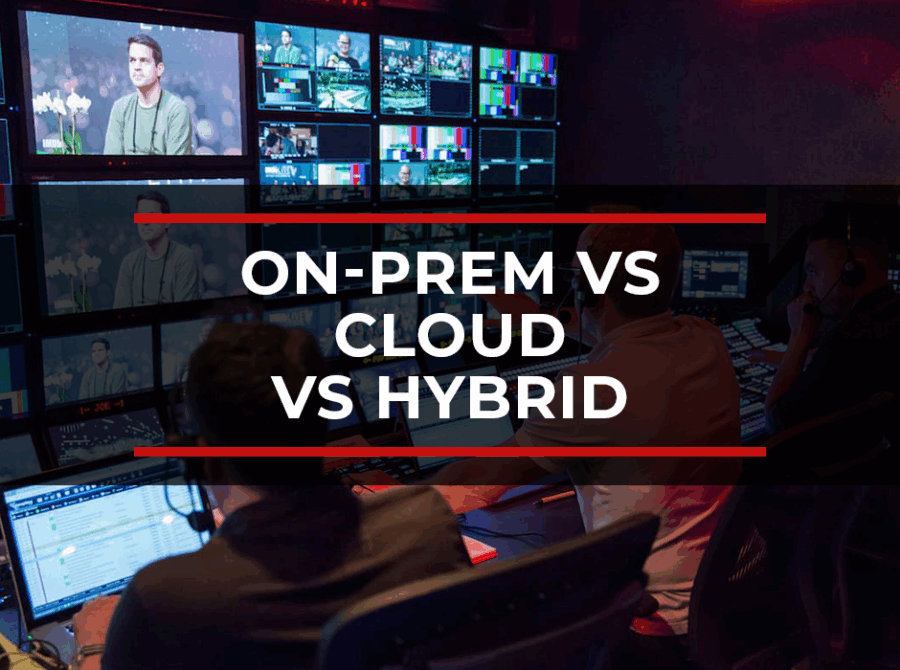













Leave a Reply